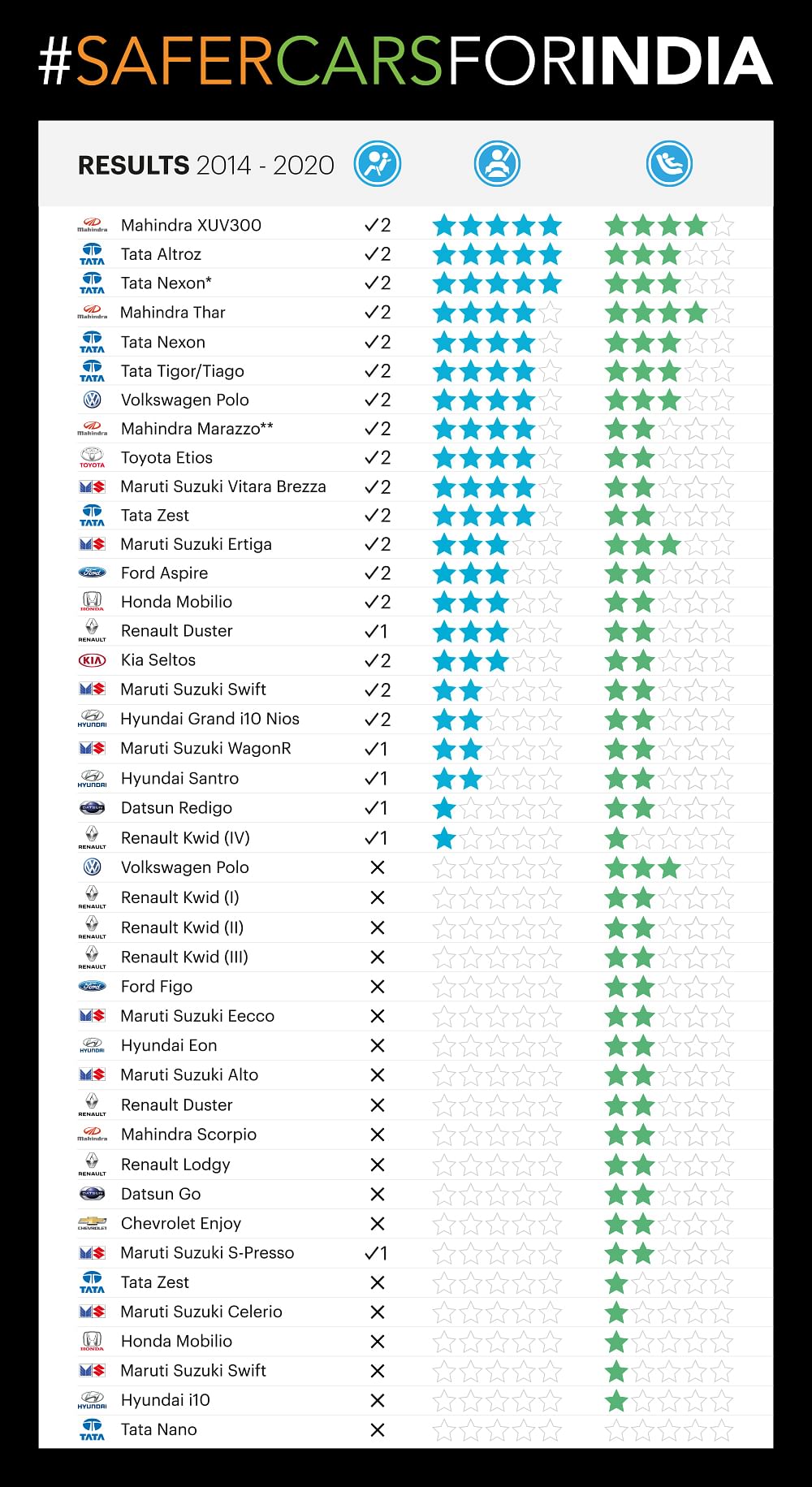Global NCAP to continue 'Safer Cars for India' campaign "at least" till 2023
Renewal of funding agreements between GNCAP and its supporting partners Bloomberg Philanthropies and the FIA Foundation enables extension of the programme.
International safety watchdog, Global New Car Safety Assessment Programme (GNCAP) plans to continue crash testing India-made vehicles for the next three to four years at least. "During this period, we very much hope that the project could evolve into a permanent Indian NCAP," David Ward, president and CEO, GNCAP tells Autocar Professional.
The renewal of funding agreements between GNCAP and its supporting partners Bloomberg Philanthropies and the FIA Foundation is learnt to have allowed the organisation to extend the duration of the campaign. GNCAP had launched the 'Safer Cars for India' campaign in 2014, under which 42 vehicles have undergone the crash test. The latest being the Mahindra Thar, which received a four-star rating for both adult and child occupant safety.
The 'Safer Cars for India' campaign has attracted both support and criticism in India. A key topic of arguement is the speed at which GNCAP conducts the crash tests. Vehicles are tested at 64kph, 8kph faster than what India's safety norms require OEMs to crash test their cars and pass in order to get launched in the market.
Defending GNCAP's test speed standard, Ward says, "This is because we want to compare the performance of different models – it is not the same as a regulatory pass-or-fail test. Our aim is to enable consumers to choose the safest car they can afford and that’s why comparative testing at a more stringent level than regulation is so important."
However, given the average driving speed in India, and the driving conditions in a market like India, an argument is that the test standards are too stringent for vehicles sold in India. Reacting to it, Ward says, "Of course, driving conditions vary considerably around the world but the risk of severe injury from the collapse of an occupant compartment is the same everywhere. The test speed used by NCAPs around the world has been chosen because above 64kph is when serious or fatal injury is most likely to occur." He adds that the average driving speeds in India could be increasing as the country's highway network sees growth.
Ward says that many of the models which fared poorly in the tests so far, could have fared better with only the presence of a passenger side airbag. The driver side airbag is necessary to meet the existing Indian safety norms. "We also hope that more manufacturers will make the anti-skid system electronic stability control (ESC) a standard safety feature too. ESC’s fitment cost is less than $50 (Rs 3,676) and is a proven life saver," he says. While the jury is still out regarding a India NCAP, additional safety features like ESC, AEB (Autonomous Emergency Braking) are set to be mandatory by 2023, for vehicles sold in India.
As the Indian automobile market matures, safety standards, awareness, discussions and debates around safety are also on the rise. Important for a country that still tops the list with the maximum number of road fatalities, globally. While that happens, enforcement of and adherence to basic safety rules, along with better designed roads are also important for safer mobility in the country.
Read the full interview with David Ward in Autocar Professional's December 1, 2020 issue.

RELATED ARTICLES
Bajaj Auto launches new Chetak 3503 at Rs 110,000
The Chetak 3503, with a claimed range of 155km, 63kph top speed and a slower charging time than its 35 Series siblings, ...
Hyundai walks the eco talk with biogas plant, material recovery plant in Gurugram
Operational since October 2022, the facility targets sustainable waste management in Gurugram by undertaking scientific ...
Rajiv Bajaj reappointed MD and CEO of Bajaj Auto for five-year term
Bajaj Auto’s Board of Directors has approved the re-appointment of Rajiv Bajaj as the company’s MD and CEO for another f...






 30 Nov 2020
30 Nov 2020
 13133 Views
13133 Views








 Autocar Professional Bureau
Autocar Professional Bureau




